Honor, Deception and Betrayal. How Cadets Were Used As Informants And Then Thrown Under The Bus
Bonfire symbolizes sex assault fight
 Air Force Academy cadets and leaders held an April 17 bonfire to mark Sexual Assault Awareness Month. (by Tom Roeder, April 22, 2014)
Air Force Academy cadets and leaders held an April 17 bonfire to mark Sexual Assault Awareness Month. (by Tom Roeder, April 22, 2014) The event held on the terrazzo in the cadet area on campus featured speeches from the school’s superintendent, Lt. Gen. Michelle Johnson, and the dean, Brig. Gen. Andy Armacost.
The bonfire was a symbol for “Take Back the Night” a ritual that began in California that’s intended to raise awareness of violence and sex crimes.
“The Air Force Academy, home to 4000 cadets and several thousand military and civilian employees, fosters a safe environment with a zero tolerance policy for sexual misconduct,” the academy said in a news release.
“A bonfire will be lit by General Johnson as the cadet wing joins together to affirm their motto of maintaining a ‘Culture of Respect,’ and take back the night,” the academy said.
Honor and Deception
A secretive Air Force program recruits Academy students to inform on fellow cadets and disavows them afterward.
Cadets who attend the publicly-funded academy near Colorado Springs must pledge never to lie. But the program pushes some to do just that: Informants are told to deceive classmates, professors and commanders while snapping photos, wearing recording devices and filing secret reports.
(Coast Guard Academy Cadet London Steverson in 1966 on a Summer Exchange Program with the Air Force Academy)
For one former academy student, becoming a covert government operative meant not only betraying the values he vowed to uphold, it meant being thrown out of the academy as punishment for doing the things the Air Force secretly told him to do.
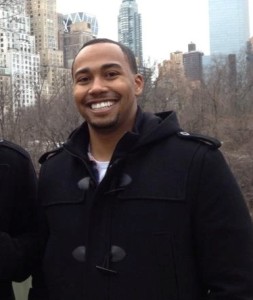
(Photo courtesy Eric Thomas)
“It was exciting. And it was effective,” said Thomas, a soccer and football player who received no compensation for his informant work. “We got 15 convictions of drugs, two convictions of sexual assault. We were making a difference. It was motivating, especially with the sexual assaults. You could see the victims have a sense of peace.”
Through it all, he thought OSI would have his back. But when an operation went wrong, he said, his handlers cut communication and disavowed knowledge of his actions, and watched as he was kicked out of the academy.
“It was like a spy movie,” said Thomas, who was expelled in April, a month before graduation. “I worked on dozens of cases, did a lot of good, and when it all hit the fan, they didn’t know me anymore.”
The Air Force’s top commander and key members of the academy’s civilian oversight board claim they have no knowledge of the OSI program. The Gazette confirmed the program, which has not been reported in the media through interviews with multiple informants, phone and text records, former OSI agents, court filings and documents obtained through the Freedom of Information Act.
The records show OSI uses FBI-style tactics to create informants. Agents interrogate cadets for hours without offering access to a lawyer, threaten them with prosecution, then coerce them into helping OSI in exchange for promises of leniency they don’t always keep. OSI then uses informants to infiltrate insular cadet groups, sometimes encouraging them to break rules to do so. When finished with informants, OSI takes steps to hide their existence, directing cadets to delete emails and messages, misleading Air Force commanders and Congress, and withholding documents they are required to release under the Freedom of Information Act.
The program also appears to rely disproportionately on minority cadets like Thomas.
“Their behavior in (Thomas’s) case goes beyond merely disappointing, and borders on despicable,” Skip Morgan, a former OSI lawyer who headed the law department at the Academy, said in a letter to the Superintendent of the Academy in April. Morgan is now Thomas’s lawyer. The Superintendent did not reply.
The Air Force also has not replied to a letter sent by Thomas’ senator, John Thune of South Dakota, in September asking officials to meet with Thomas.
While the informant program has resulted in prosecutions, it also creates a fundamental rift between the culture of honesty and trust the academy drills into cadets and another one of duplicity and betrayal that the Air Force clandestinely deploys to root out misconduct.
The Gazette identified four informants. Three agreed to speak about their experience with OSI. All had been told they were the only informant on campus, but eventually learned of more, including each other. Because of the secretive nature of the program, The Gazette was unable to determine its scope, but the informants interviewed by The Gazette said they suspect the campus of 4,400 cadets has dozens.
“It’s contradictory to everything the academy is trying to do,” said one of the informants, Vianca Torres. “They say we are one big family, and to trust each other, then they make you lie to everyone.”
Gen. Mark Welsh, the Chief of Staff of the Air Force, the service’s top officer and only commander with authority over both the academy and OSI, said he was unfamiliar with the cadet informant system.
“I don’t know a thing about it,” he said in an interview in October.
Members of the academy’s civilian oversight board, which includes members of Congress, also said they had not heard of the program.
Records show, for a time, Thomas was at the center of it. He worked major operations that netted high-profile prosecutions. OSI documents said he was “very reliable” and “provided OSI with ample amounts of vital information.”
Legal experts say informants are useful and commonly employed in fighting crime. But informants on college campuses are exceedingly rare, and other experts warn they have a corrosive effect on individuals and institutions.
“It changes everyone’s relationship to the whole institution because it erodes the moral authority of the law,” said Loyola University professor Alexandra Natapoff, who studies informants and the law. “There are rules — unless you snitch. People begin to question the fairness of the system. And it sets cadets against their fellow cadets. It can really change their lives, sometimes in ways that can be very harmful.”
The three informants who spoke to The Gazette said the system needs reform.
“I hate it,” said a third cadet who said he became an informant in 2011. The cadet, who graduated in May and is now an officer, did not want to be identified because he feared retribution by the Air Force. He said being an informant was the worst thing he has ever done. “It puts you in a horrible situation: Lying, turning on other cadets. I felt like a rat. OSI says they will offer you protection, have your back. Then they don’t. Look what happened to Eric.”
Integrity first
Thomas said his life as an informant started after an off-campus cadet party in 2010.The Air Force Academy is hardly known as a party school. Incoming cadets face a barrage of rules. For the first several months, they can’t wear civilian clothes or even civilian eyeglasses. They must run at attention to class and sit at attention at meals, setting forks down before chewing each bite seven times. They live in dorms where TVs, microwaves, and even unauthorized pillows are forbidden until senior year. These long-held traditions, used at all military academies, are designed to strip students of former identities and instill the collective identity of the Air Force.
Any slip-up earns a cadet punishment and demerits. A cadet who amasses 200 demerits gets expelled. Any illegal drug use is grounds for immediate dismissal. About 70 cadets each year are kicked out.
Cadets are made to repeat the core values of the Air Force: “Integrity first, service before self, and excellence in all we do.”
They pledge to an honor code: “We will not lie, steal or cheat, nor tolerate among us anyone who does.” Telling a lie can get a cadet expelled. Even telling misleading truths, known as “quibbling,” can land a cadet in hot water.
The idea is to forge the integrity future officers need.
Even so, some cadets throw illegal parties off base, usually at houses rented for the weekend by a third party.
In fall 2010, Thomas, a sophomore, went to a house party near Divide. It was a typical college bash, he said, with pounding music, beer and cadets on the back porch smoking pot and a synthetic marijuana called spice.
The party was busted by civilian police. About two weeks later, the then 21-year-old said he was ordered to report to OSI for questioning.
OSI, formed in 1948, has about 2,300 personnel at bases around the globe who investigate terrorism threats, espionage, fraud, and other major crimes. Its motto is “eyes of the eagle.” Agents wear no rank or uniform. They answer not to the commanders where they are based, but to a central OSI office near Washington, D.C.
The Academy has about 12 agents, but cadets say few students know OSI exists.
An OSI agent named Mike Munson brought Thomas into a small interrogation room with a one-way mirror and a microphone, Thomas said. Munson did not respond to The Gazette’s email requests for an interview.
Thomas said he wasn’t nervous. He was a straight-laced athlete from a strict home who had never done drugs and drank very little. The agent told him he was there only as a witness. He wanted to know who did what at the party. At first, Thomas gave vague answers, but Munson pressed harder, Thomas said, grilling the cadet for more than three hours: OSI had witnesses. They had proof Thomas knew more than he was saying. It was the cadet’s duty to tell the truth. Under the honor code, not turning in spice smokers was the same as smoking spice.
The academy teaches cadets not to question superiors, Thomas said. When OSI asked him to do things, he thought he had little choice.
“Eventually I told them everything I knew,” Thomas said.
Thomas’s experience mirrors that of Vianca Torres. At age 20, when she was a junior, she said, OSI called her in as a potential witness because she had gone to a party where other women had reported being sexually assaulted. OSI interrogated her for six hours, she said, grilling her not only about the assaults but about drug use and other crimes among her friends going back years. At first the cadet with a clean record said she resisted, but they pressed harder.
“They called me a disgrace to my country. They called me a disgrace to my family,” she said.
Sobbing, she said, she eventually told on friends and admitted to smoking spice two years before.
OSI charged her for the crime, then promised to make the charge go away if she became an informant. She worked for OSI for 10 months, she said. OSI tried to plant a video camera in her alarm clock to bust a friend, she said.
She balked at the camera, she said, but did everything else OSI asked. Even so, she was kicked out in November, 2012 for her admission of drug use years before.
Before she was expelled, Torres said, OSI ordered her to delete all texts and emails showing the existence of her handler. In retrospect, she said, OSI just dragged out her dismissal so she could do more work as an informant.
“You just get used,” said Torres. “OSI gets what they want and kicks you to the curb.”
OSI has used similar informant programs at other bases for decades. But at the Academy it has been using cadet informants for about 10 years, documents show.
“You just get used.
OSI gets what they want
and kicks you to the curb.” -Vianca Torres
At the end of Thomas’s interrogation, Munson told him that the Air Force wanted him to become a confidential informant.
“What would I have to do?” Thomas asked.
“Just get in with everyone,” he remembers Munson saying. “Go to parties, flirt with females, be friends with everyone. That’s how you start.”
Thomas asked if it would mean breaking the cadet honor code. He said Munson told him there was no cadet honor code in this line of work.
Trust is at the heart of any honor code, said Laurie Johnson, a Kansas State University professor who specializes in ethics and honor codes. “By introducing spying I would think the cadets would believe there’s no trust,” Johnson said.
Worse, she said, if the Air Force encourages cadets to break the honor code as informants, it shows leaders have little use for the rules cadets are expected to follow.
Asked about the apparent contradiction between demanding honesty and using informants, an academy spokesman said: “A cadet has the responsibility to not only live by the honor code, but report those who don’t.”
Many people would find snitching on classmates shady, Thomas said. But he saw it differently. All cadets pledge to uphold academy rules. But some of his fellow cadets, who might someday lead the Air Force, seemed to have little respect for the pledge.
“I took that very seriously,” he said. “If we are not accountable to that standard, who is? But it was hard. You had to choose between your friends and what’s right.”
What tipped the balance for Thomas was a friend who had been sexually assaulted. He said he had watched her struggle when the investigation ended in a “he said, she said” stalemate. A confidential informant might have helped.
Thomas agreed to help OSI.
Agents made him sign non-disclosure papers and told him he could be thrown in a military prison if he talked about his work. He could not even tell his commanders, they said. OSI would notify them instead. As Thomas left that life-changing meeting with OSI, he remembers the agent saying, “Wait to be contacted. And remember, don’t tell anybody.”
Thomas worked his way in with the party kids, troublemakers and other cadets OSI called “targets.” OSI gave him training on how to pass himself off as one of the “bad crowd.” He got close with football players who OSI knew were the focus of several confidential sexual assault accusations. He became tight with a guy from the sky diving team who OSI thought was selling marijuana.
Some cadets, he discovered, kept secret houses in Colorado Springs where they could store motorcycles, throw keggers, hook up with the opposite sex and do other things forbidden on base. He said he started going to house parties almost every weekend, taking photos on his phone, writing down addresses, and noting who was doing what.
“I’m not going there getting hammered, just hoping I’ll see something. I went with a specific intent,” Thomas said. “I’m blending in, not getting drunk, not flirting, just watching.”
He would call OSI to report his findings.
Then Thomas got a new handler late in 2011 and, he said, things got “much more intense.”
Thomas started getting texts several times a week from someone called “Briana”:
“Call me as soon as you can.”
“Doing an op tomorrow, call me.”
“Meet me in the bx parking lot.”
“Be sure to keep me updated.”
Briana was actually a stocky blond with a thin beard and glasses named Special Agent Brandon Enos.
Enos texted several times a week, sometimes late at night, telling the cadet to meet at a remote parking lot behind the academy’s B-52 bomber or some other secluded location, Thomas said.
Enos would be waiting in an unmarked black Dodge Durango to drive Thomas off base. OSI reports obtained through the Freedom of Information Act show Enos would discuss findings, plan strategy, and tell Thomas what to do next. At one point, before a planned drug buy, Thomas said, Enos pulled out a pack of cheap cigars and showed him how to roll a blunt and appear to smoke it without inhaling.
“The whole time I was like, ‘OK, I’m getting told how to roll a blunt by a federal agent; this is a different cadet experience that is not in the brochure’,” Thomas said.
Torres said Enos was also her handler.
Enos did not respond to requests for comment sent to an email address he used to communicate with Thomas.
Informing took a toll. Thomas said he often would not get back from meetings until after midnight, leaving little time to do homework. His grades dropped and he was put on academic probation. Because of the company he kept, he said he got a bad reputation.
“My chain of command thought I was a dirt bag who didn’t care about the rules, when the truth was the opposite,” he said.
Worst of all, he said, was not being able to tell anyone the truth. In college, when most young adults are forging their identities, his identity was a forgery.
“I’m running in all these different cliques, trying to be different people. It’s lonely, very lonely,” he said. “You put on so many faces that after a while you forget your own.”
The effect this large-scale deception can have on the informant is perhaps the most troubling aspect of the practice, said Martin Cook, a professor of military ethics at the U.S. Naval War College, who taught for years at the academy.
“Is it appropriate for OSI to use these methods in the Air Force? Yes, I think so. It may serve a greater good,” he said. “But is it appropriate to recruit young people into this at a key time when they are trying to form their morality? That could certainly cause problems the rest of their lives. That’s a harder question.”
OSI wanted Thomas to get in with a cadet named Stephan Claxton, Thomas said.
Four female cadets had reported being sexually assaulted by Claxton, Thomas said, but the reports were made using a confidential reporting system designed to protect victims, so the Air Force could not use them to prosecute.
Instead, they used Thomas.
“The idea was to track Claxton,” said Thomas. “We know he gets drunk and does this stuff. He’s a time bomb. It’s only a matter of waiting until he does it again.”
Nov. 5, 2011, was a Saturday. That evening, Claxton went out with a bunch of friends, including a civilian woman engaged to a cadet at the academy. Thomas was not allowed to leave base that weekend, but, he said, OSI urged him to tail Claxton, so he broke the rules and tagged along.
The group went drinking in downtown Colorado Springs. What happened next is according to testimony in the court-martial that followed.
The woman got drunk and passed out in the car they were riding in. No one knew where she lived, so the cadets took her back to the academy to find her fiancé.
At about 2 a.m., Claxton, a basketball player who had been out with them, and Thomas carried her down the empty dorm hall and put her in Thomas’ bed.
A drunk female passed out in the room could get them busted, so they went to find her fiancé and have him take her home.
Unbeknownst to them, Claxton stayed behind and locked the door.
Another cadet who had been out with them returned to the room and tried the door.
“Eric, why is your door locked?” he whispered to Thomas, who had started walking down the hall.
Thomas wasn’t sure.
He went back and knocked. After about a minute, Claxton opened the door a crack and asked what they wanted, then started to close the door.
Thomas realized what might be happening and pushed his way in. They found the woman, still passed out, with her shirt up and pants undone.
A fight broke out.
Other cadets who heard the noise burst in. Some pulled Claxton off Thomas. Some carried the woman to another room. Thomas fled and called his commander from down the hall.
Claxton was charged with sexual misconduct and sentenced to six months behind bars. The other cadets, including Thomas, were punished for the other infractions, including sneaking off base and having a female in the dorm.
Thomas said he assumed he would be protected by OSI.
He wasn’t.
Air Force records show the Academy’s vice commandant knew of Thomas’ OSI involvement and ordered a special hearing officer to privately review the case, saying the normal discipline process was “not the right forum to discuss the more sensitive information.”
It never happened.
Thomas’ squadron commander, who Thomas said knew nothing of his involvement with OSI, recommended expulsion.
Thomas was stripped of rank and restricted to base.
Text messages obtained by The Gazette show OSI continued to direct Thomas to leave base to follow targets, even though he was restricted.
He obeyed.
When the academy found out he was leaving despite his restrictions, commanders were outraged at his contempt for the rules.
“I couldn’t tell them what was really going on. I had signed papers. I just had to stand there and take it,” he said.
As punishment, the academy gave Thomas 309 demerits — more than 100 more than are required for expulsion. Commanders also ordered him to serve 186 confinements and 94 tours. Each confinement meant two hours of sitting silently in a room. Each tour meant one hour of marching with a heavy rubber rifle in a tight square in the center of campus. Thomas said he spent many weekends in dress blues marching from sunup to well past sundown.
The discipline board recommended that Thomas be expelled. OSI told him not to worry, he said. They were taking care of things behind the scenes. He just had to keep his mouth shut.
Operation Gridiron
Thomas’s work with OSI didn’t stop when he got in trouble. It intensified.Phone records and OSI documents show he was in constant contact with OSI in the winter and spring of 2012.
OSI wired him up to record parties, he said. It had him delve into suspicions that football players got special treatment from professors, and gave him pens and lighters that were actually recording devices to take on drug buys.
He was pivotal in a major bust that made headlines and led to the expulsion of one of the football team’s star players, he said. OSI called it Operation Gridiron.
At 5 a.m. Jan. 12, 2012, academy officers swept into the dorms, banging on the doors of about 50 cadets, confiscating their phones and ordering them to get dressed, and report immediately to OSI.
It was the first phase of an operation to bust cadets using information gathered by Thomas during the previous year, Thomas said.
They had planned the operation for weeks and even made Thomas take a polygraph test to ensure his information was accurate, OSI records show.
The main target was a group of about 10 football players thought to be involved in drugs including the star tailback. OSI also brought in a handful of suspected partiers from the basketball team, soaring team and sky diving team. But most of the cadets called in had done nothing wrong and were simply there as decoys, Thomas said.
Thomas sat in the group wearing a hidden recording device.
Over the next 11 hours OSI agents took cadets one by one from a waiting room to interrogation rooms, using information from Thomas to get confessions. One of them was a former fullback named Ryan Williams, Thomas said. Agents told Williams that his teammate Asher Clark, the team’s star tailback, had already told OSI that Williams had smoked spice at a party. OSI seemed to know every detail down to what he had been wearing the night of the party. Seeing he was caught, Williams confessed, then implicated Clark, Thomas said.
In fact, Clark had said nothing to OSI. The information had come from Thomas, who had been at the party.
Next, agents interrogated Clark and did the same thing. Clark confessed and implicated Williams.
Back in the waiting room, the two players started yelling and shoving one another, Thomas said, furious that they’d sold each other out.
Clark, Williams and five other cadets were kicked out or left the academy as a result of Operation Gridiron. Others were disciplined.
“My freshman roommate got wrapped up in it, too,” Thomas said. “He was caught with a house off base and almost kicked out. That really sucked, seeing a friend get in trouble and knowing I had a part in it.”
Terminated
Thomas testified at the court-martial of Claxton, who was convicted.Documents show he also fed information to OSI that led to the 2013 sexual assault conviction of another cadet, linebacker Jamil Cooks.
“Those were the first convictions for sexual assault at the academy since 1997,” Thomas said. “What we were doing was working.”
Cadets with as many demerits as Thomas are kicked out in a matter of weeks. But Thomas kept going to classes through the spring and summer of 2012. Officially, he was told a computer crash had delayed his expulsion. Privately, he assumed OSI was helping behind the scenes.
At the end of August 2012, Thomas’ case went to a closed hearing with the vice commandant and other leaders — the final stop on the way to expulsion.
“I will come speak on your behalf about Claxton,” his handler texted a few days before the meeting. “You need people to see the positive and not hone in on negative.”
With this assurance, Thomas arrived in dress blues at the commandant’s office, ready to finally have someone explain his work.
He looked around the room. His handler was not there.
Thomas sat down and waited.
“Are you still coming?” he texted.
The agent never showed up.
Thomas went into the hearing alone.
“I got completely destroyed in there — perceived as a cadet who doesn’t know right from wrong, with no foundation of integrity, the polar opposite of what I have tried to be,” he said. “And I could say nothing.”
The board voted unanimously to expel him.
Thomas texted and called OSI during the next few days but agents stopped responding.
In one of the last texts Thomas sent to his handler, he wrote: “Is everything OK?”
No response.
Files obtained through the Freedom of Information Act show OSI “terminated” Thomas on Sept. 10, 2012, because he “no longer had access to targets.”
“They lied to him. They lied when they said they would be there and they lied when they said there were no records,” said Skip Morgan, the former OSI lawyer who became Thomas’ attorney.
In the letter to the superintendent in April, Morgan said text records clearly show Thomas was working for OSI on the days he was being punished for sneaking off base, adding, “He was instrumental in drug investigations and sexual assault investigations. His reward was for OSI to abandon him.”
The academy did not reply.
Morgan, a retired colonel, told The Gazette that in his years representing Air Force cadets he has never seen such a case.
“This is a young man who really tried to do the right thing. It takes tremendous moral conviction. And they left him in the lurch,” he said. “They lied to him on several occasions. I thought that was shabby. I don’t care who hears that, it was shabby treatment unbecoming of a commissioned officer.”
Informants are a useful tool for the Air Force, Morgan said, but they must be treated fairly.
“If you don’t treat them fairly, you are not going to have informants. Word gets out real fast; don’t trust OSI,” he said.
The types of abuses Thomas describes are common in informant systems because there is almost no oversight, said Alexandra Natapoff, the Loyola professor, who is author of the book “Snitch: Criminal Informants and the Erosion of American Justice.”
The deals that law enforcement makes with informants lack the checks and balances of the rest of the American justice system, she said. “All kinds of things happen without public scrutiny: lying, corruption, and continued criminal behavior.”
Informants can be abused or lied to with little recourse, she said because law enforcement “holds all the cards. And in the end it’s the law of the jungle.”
Another concern, she said, is that informant programs tend to disproportionately target minorities and poor people with less access to legal defense.
The four Academy informants The Gazette identified are Black or Hispanic.
Once Thomas realized OSI had cut him loose, he started telling anyone who would listen — his squadron commander, his master sergeant, his group commander, the vice commandant of culture and climate, the deputy commander, even his mother.
His mother, Rosita Perez Walker, was furious OSI had used her son as an informant.
“These kids are so young, so naive,” she told The Gazette. “They have been trained to obey orders. They are taught how to eat, how to sit, how to walk, everything. You say jump, they jump. To expect them to have enough judgment to question federal agents?”
She called OSI’s central office in Virginia to complain.
Soon after, Thomas got a call from his OSI handler, saying he wanted to meet at the OSI office and sort things out. When Thomas arrived, he said, the handler was not there. Instead, he said, the OSI detachment commander, Lt. Col. Vasaga Tilo, took Thomas in an interrogation room and yelled at him, warning him to keep his mouth shut.
In an interview with The Gazette, Tilo refused to talk about the confidential informant program, other than to say, “We use informants in the same way any other law enforcement does.”
Thomas kept talking.
He told Rep. Neugebauer. He told Sen. Thune of South Dakota. Both ordered inquiries. The Air Force responded to Neugebauer in June, saying that Thomas had worked as an informant, but not until after he got in trouble in his dorm room — a year later than Thomas claims. At no point, OSI said, was Thomas “directed or influenced in any way to break any rules.” The Air Force responded to Thune in August, saying while there were what it called “administrative errors” in Thomas’ dismissal, the academy “stands by their decision that disenrollment is both appropriate and in the best interest of the Air Force.”
Thune then sent a letter to the secretary of the Air Force and the superintendent of the academy in September, asking them to meet with Thomas. Thomas has not heard from either.
Despite OSI’s claims to a Congressman that it told Thomas to keep clean, OSI documents clearly show agents repeatedly directed Thomas to sneak off base to go after targets and buy drugs while lying to commanders to cover it up.
While his expulsion was pending, Thomas kept going to class, hoping things would work out. He was accepted to Air Force pilot school and looked forward to flying after graduation.
He was kicked out of the academy in April, six weeks before graduation.
He no longer thinks the process took so long — 16 months from when he got in trouble — because OSI was working back channels to help him. Now he thinks he was strung along so he could work longer as an informant.
On his way out of the academy, Thomas got a tacit acknowledgement of his work. Cadets expelled in their senior year typically must repay almost $180,000 for their education. Thomas does not.
“Someone did him a favor,” said his lawyer. “Someone realized what he said was true and tried to repay him to some extent.”
Betrayed
Thomas moved back in with his family in South Dakota. He has appealed to the office of the Secretary of the Air Force, Eric Fanning, saying he was wrongfully dismissed. He is waiting for a response. In the meantime, he helps disabled children, mentors the youth group at his church, and does odd jobs for neighbors.Only about half of his academy credits will be accepted at other schools, so he may have to repeat years of college, but he can’t apply to other schools because he remains in the Air Force until the matter is settled.
“In the meantime, I’m in limbo,” he said.
Looking back at the three-year ordeal, he is angry. He is angry because he loves the Air Force and feels betrayed by how OSI treated him. And angry because he knows that OSI is probably recruiting new informants it can later toss aside. Most of all, he said, he is angry the academy is allowing it to happen by failing to create guidelines for the treatment of cadet informants and adequately tracking the system.
“It needs to change,” he said. “I am not saying people shouldn’t work for OSI. We did a lot of good work. But they need protection. They need guidelines. Someone needs to be watching this. Otherwise, look what happens.”
— By Dave Philipps
But many academy graduates and parents are voicing concern that the academy stands by a practice they see as corrosive to the institution's core values of trust and honesty.
On Sunday, The Gazette published an investigation showing the Air Force uses a system of cadet informants to spy on other cadets. The students are instructed to inform on classmates, professors and commanders while helping the Air Force Office of Special Investigations gather information on drug use, sexual assault and other cadet misconduct.
Honor and deception: A secretive Air Force program recruits academy students to inform on fellow cadets and disavows them afterward
It is unclear how many informants operate among the 4,400 cadets, but informants say their efforts have helped lead to several high-profile convictions and expulsions.
In a letter to graduates Wednesday obtained by The Gazette, Lt. Gen. Michelle Johnson defended the confidential informant program as "vital" and pledged her personal oversight.
"The CI program has rarely been used at USAFA, and when employed it is deliberate, judicious and limited to felony activity; there are no ongoing operations," she wrote in her letter. "I will exercise oversight of any operations involving cadet confidential informants.
Air Force Academy defends use of student informants, challenges reliability of ex-cadet
"Many of you have voiced concerns regarding inconsistencies between a CI program and the Cadet Honor Code. I want you to know that the chain of command does not condone lying, cheating or any violation of the Honor Code in support of CI investigations."
Johnson did not respond to repeated requests for an interview this week.
She is scheduled to address the Association of Graduates board of directors about the issue Friday at their office on the academy grounds.
Some parents and graduates say the academy has not addressed the key issues surrounding the secret informant program. In various Internet forums and in conversations with The Gazette, they noted that the academy's statement defending the program Tuesday focused on trying to discredit Eric Thomas, one of the cadets featured by The Gazette.
"They are missing the point," said a parent who did not want to be identified because he feared it could affect his cadet's career. "They went after Thomas but never addressed the merits of the program. They are just trying to kill the messenger."
Thomas was expelled this spring, weeks before graduation, for misconduct he said was incurred in the service of OSI.
The parent said larger issues need to be discussed. "And they have yet to address how it affects the cadet culture."
He said most parents he has spoken to are concerned, and cadets are "deeply dismayed." He added that he was not assured by Johnson's statement that there are no "ongoing operations."
Graduates posting on Internet forums were generally critical of the program.
One local graduate said in a group email, which included several current and former top Air Force commanders, that the academy's response ducked the main controversy.
"Is USAFA, or the OSI at USAFA, asking some cadets to do things that are inherently against the principles of honor and integrity that were ingrained in us when we were at USAFA?" said the email, which was obtained by The Gazette. "We need to know what OSI did or did not do in this case. I believe this is too big to trust to the USAFA leadership."
Comment Policy
Read more at http://gazette.com/afa-leader-pledges-oversight-of-program/article/1510547#lGdxyEoLsMTzx4fg.99

Read more at http://gazette.com/gallery/articleid/1510547/1/pictures/375937#Jd3glQc1Iued5WFs.99
But many academy graduates and parents are voicing concern that the academy stands by a practice they see as corrosive to the institution's core values of trust and honesty.
Read more at http://gazette.com/afa-leader-pledges-oversight-of-program/article/1510547#lGdxyEoLsMTzx4fg.99
But many academy graduates and parents are voicing concern that the academy stands by a practice they see as corrosive to the institution's core values of trust and honesty.
Read more at http://gazette.com/afa-leader-pledges-oversight-of-program/article/1510547#lGdxyEoLsMTzx4fg.99
But many academy graduates and parents are voicing concern that the academy stands by a practice they see as corrosive to the institution's core values of trust and honesty.
On Sunday, The Gazette published an investigation showing the Air Force uses a system of cadet informants to spy on other cadets. The students are instructed to inform on classmates, professors and commanders while helping the Air Force Office of Special Investigations gather information on drug use, sexual assault and other cadet misconduct.
Honor and deception: A secretive Air Force program recruits academy students to inform on fellow cadets and disavows them afterward
It is unclear how many informants operate among the 4,400 cadets, but informants say their efforts have helped lead to several high-profile convictions and expulsions.
In a letter to graduates Wednesday obtained by The Gazette, Lt. Gen. Michelle Johnson defended the confidential informant program as "vital" and pledged her personal oversight.
"The CI program has rarely been used at USAFA, and when employed it is deliberate, judicious and limited to felony activity; there are no ongoing operations," she wrote in her letter. "I will exercise oversight of any operations involving cadet confidential informants.
Air Force Academy defends use of student informants, challenges reliability of ex-cadet
"Many of you have voiced concerns regarding inconsistencies between a CI program and the Cadet Honor Code. I want you to know that the chain of command does not condone lying, cheating or any violation of the Honor Code in support of CI investigations."
Johnson did not respond to repeated requests for an interview this week.
She is scheduled to address the Association of Graduates board of directors about the issue Friday at their office on the academy grounds.
Some parents and graduates say the academy has not addressed the key issues surrounding the secret informant program. In various Internet forums and in conversations with The Gazette, they noted that the academy's statement defending the program Tuesday focused on trying to discredit Eric Thomas, one of the cadets featured by The Gazette.
"They are missing the point," said a parent who did not want to be identified because he feared it could affect his cadet's career. "They went after Thomas but never addressed the merits of the program. They are just trying to kill the messenger."
Thomas was expelled this spring, weeks before graduation, for misconduct he said was incurred in the service of OSI.
The parent said larger issues need to be discussed. "And they have yet to address how it affects the cadet culture."
He said most parents he has spoken to are concerned, and cadets are "deeply dismayed." He added that he was not assured by Johnson's statement that there are no "ongoing operations."
Graduates posting on Internet forums were generally critical of the program.
One local graduate said in a group email, which included several current and former top Air Force commanders, that the academy's response ducked the main controversy.
"Is USAFA, or the OSI at USAFA, asking some cadets to do things that are inherently against the principles of honor and integrity that were ingrained in us when we were at USAFA?" said the email, which was obtained by The Gazette. "We need to know what OSI did or did not do in this case. I believe this is too big to trust to the USAFA leadership."
Comment Policy
Read more at http://gazette.com/afa-leader-pledges-oversight-of-program/article/1510547#lGdxyEoLsMTzx4fg.9By Dave Philipps
Gazette reporter Tom Roeder contributed to this report.
Contact Dave Philipps
dave.philipps@gazette.com
LT. GEN. Michelle General Johnson, the top general of the Air Force Academy, said Wednesday, 4 December, that the use of confidential cadet informants (CI) at the academy has ceased for the time being and vowed to oversee "any operations involving cadet confidential informants" in the future.
But many academy graduates and parents are voicing concern that the academy stands by a practice they see as corrosive to the institution's core values of trust and honesty.
As previously stated the Air Force uses a system of cadet informants to spy on other cadets. The students are instructed to inform on classmates, professors and commanders while helping the Air Force Office of Special Investigations gather information on drug use, sexual assault and other cadet misconduct.
Honor and deception: A secretive Air Force program recruits academy students to inform on fellow cadets and disavows them afterward
It is unclear how many informants operate among the 4,400 cadets, but informants say their efforts have helped lead to several high-profile convictions and expulsions.
In a letter to graduates Lt. Gen. Michelle Johnson defended the confidential informant program as "vital" and pledged her personal oversight.
"The CI program has rarely been used at USAFA, and when employed it is deliberate, judicious and limited to felony activity; there are no ongoing operations," she wrote in her letter. "I will exercise oversight of any operations involving cadet confidential informants.
Air Force Academy defends use of student informants, challenges reliability of ex-cadet
"Many of you have voiced concerns regarding inconsistencies between a CI program and the Cadet Honor Code. I want you to know that the chain of command does not condone lying, cheating or any violation of the Honor Code in support of CI investigations."
She was scheduled to address the Association of Graduates board of directors about the issue on Friday, 6 December, at their office on the academy grounds.
Some parents and graduates say the academy has not addressed the key issues surrounding the secret informant program. In various Internet forums, they noted that the academy's statement defending the program Tuesday focused on trying to discredit Eric Thomas, one of the cadets featured by The Gazette in it's groundbreaking expose' of the story.
(Former Air Force Academy Cadet, Eric Thomas says he was used, abused, and abandoned.)
"They are missing the point," said a parent who did not want to be identified because he feared it could affect his cadet's career. "They went after Thomas but never addressed the merits of the program. They are just trying to kill the messenger."
Cadet First Class Eric Thomas was expelled this spring, weeks before graduation, for misconduct he said was incurred in the service of OSI.
The parent said larger issues need to be discussed. "And they have yet to address how it affects the cadet culture."
He said most parents he has spoken to are concerned, and cadets are "deeply dismayed." He added that he was not assured by Johnson's statement that there are no "ongoing operations."
Air Force officers, graduates of the Academy, posting on Internet forums were generally critical of the program.
One local graduate said in a group email, which included several current and former top Air Force commanders, that the Academy's response ducked the main controversy.
"Is USAFA, or the OSI at USAFA, asking some cadets to do things that are inherently against the principles of honor and integrity that were ingrained in us when we were at USAFA?" said the email. "We need to know what OSI did or did not do in this case. I believe this is too big to trust to the USAFA leadership."
January 15, 2014. Now Hear This! Further developments in the USAFA scandal.
WASHINGTON — Members of Congress are sharply criticizing a recently revealed program to recruit U.S. Air Force Academy cadets to serve as informants on other cadets suspected of drug use and sexual assault.
"I'd just like to go on the record as saying I don't see how being an informant is compatible with living out the honor code," said Rep. Doug Lamborn, a Colorado Republican who represents the Colorado Springs congressional district where the academy is located.
"I think we need to take a hard look about whether this is appropriate for an academic institution, because after all, you are an academic institution," said Rep. Niki Tsongas, D-Mass. "This raises to me a lot of questions that are very hard for you to explain."
Lamborn and Tsongas serve on the Air Force Academy's (USAFA) Board of Visitors, a 15-member oversight board that held a special meeting Tuesday on Capitol Hill in response to the controversy. The informant program was first reported by the Colorado Springs Gazette on Dec. 1.
The Gazette highlighted the case of Cadet Eric Thomas, who said he was recruited by the Air Force's Office of Special Investigations after being suspected of attending an off-campus party at which drugs were used. Thomas agreed to serve as an informant on fellow cadets, but told the paper he became increasingly uncomfortable that he was being asked to disobey academy rules in order to get closer to his targets.
STORY: Reports of sexual assault dip at military academies
When Thomas was brought up on disciplinary charges, the OSI agents disavowed the operation and Thomas was expelled, the Gazette reported.
Lt. Gen. Michelle Johnson, the USAFA Superintendent, and Brig. Gen. Gregory Lengyel, disputed that version of events Tuesday. They said Thomas already had enough demerits to be expelled before he was recruited, and that his expulsion was for disciplinary and academic reasons unrelated to his work as an informant.
STORY: Air Force Academy gets 1st female superintendent
Academy commanders also defended the informant program, saying it was used rarely and was always subject to the oversight of the academy's top brass. While Johnson said she couldn't imagine a situation where she would approve the use of an informant in the future, she said she couldn't rule it out as a tool to investigate serious offenses. And she noted that the legalization of marijuana in Colorado could pose a challenge for the academy, where any drug use on or off campus is still a violation of Defense Department regulations.
Johnson said the Air Force is investigating whether Thomas's OSI handlers acted appropriately, and a report is expected by the end of the month. She conceded that the affair had given the academy was a black eye, but said the Air Force was constrained by privacy laws from defending its actions more vociferously.
"We've revealed a lot here that the general counsel is not going to be comfortable with," Johnson said. "If you want to go point counterpoint, it has to be in a public forum. I agree with a free press, but it's not always a 100% accurate press."
Labels: Cadets and Crime.



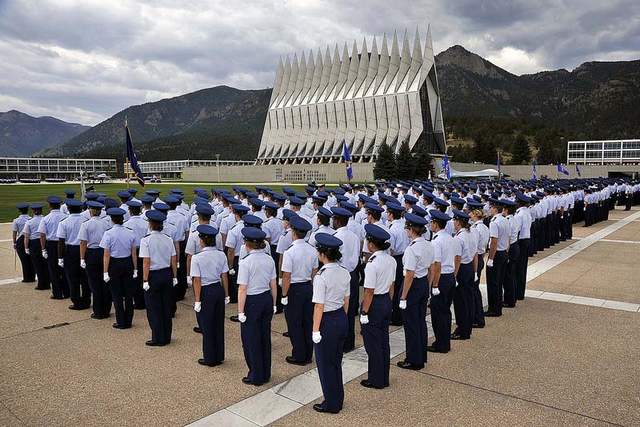
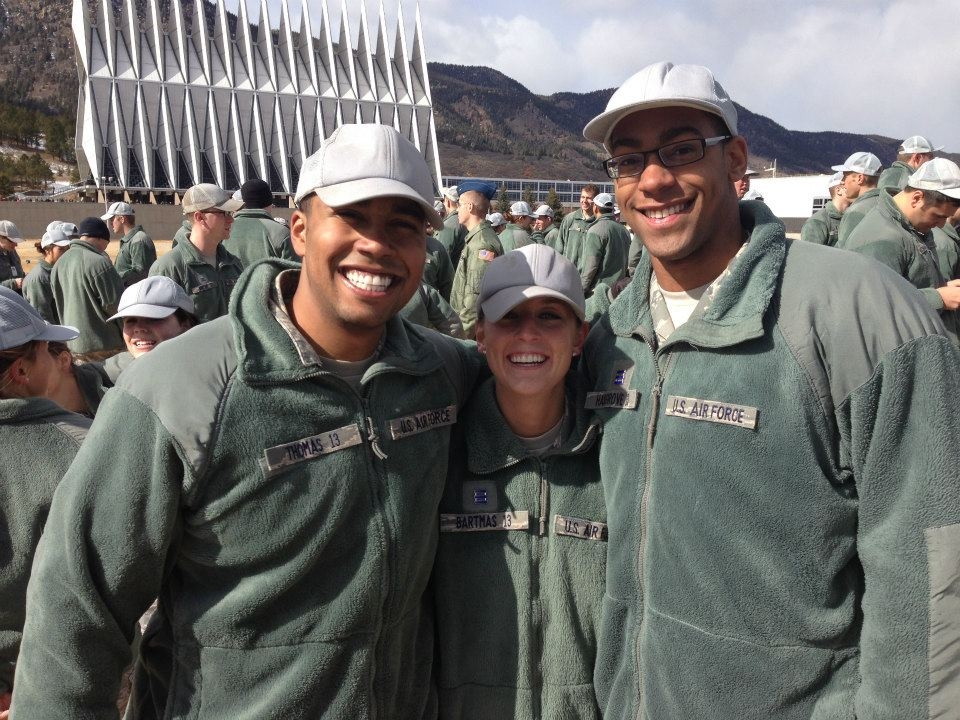
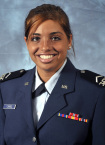
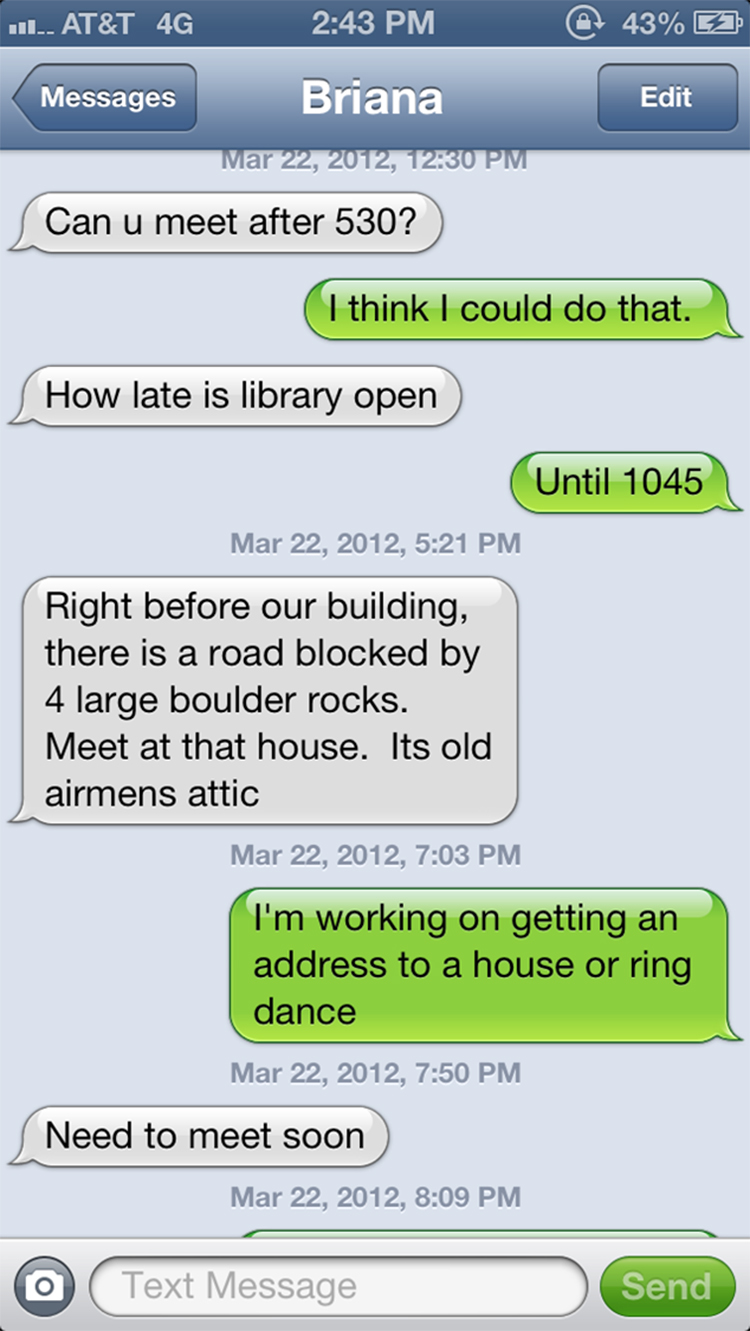
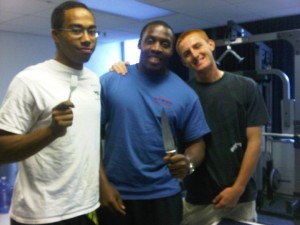

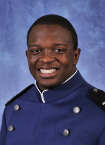
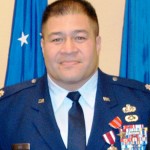
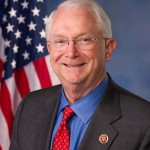
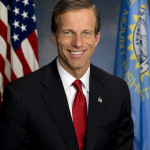









1 Comments:
Michael Weinstein is an honor graduate of the Air Force Academy. He previously served as White House Counsel in the Reagan administration and general counsel to H. Ross Perot and Perot Systems Corp. He wrote this "Despite pathetically disingenuous damage control efforts by newly-minted Superintendent Lt. Gen. Michelle Johnson, the Academy simply can’t shrug off the pungent stench of Keystone Kops negligence and willful malfeasance which it has ignominiously accumulated over its last deplorable decade of serial scandals. Clearly, the Air Force’s Office of Special Investigations (OSI) agrees. The arresting news broke only a few days ago that the OSI allegedly “recruited” (read: strong-armed) multiple Academy cadet informants into forced participation in “FBI-style” sting operations to allegedly infiltrate those suspected of sexual assault and drug distributors among the ranks of Academy personnel. It is alleged by at least one former cadet, since expelled from USAFA, that the OSI instructed and even encouraged cadet informants to break laws, as well as the venerated Cadet Honor Code, to buttress the likelihood of the accomplishment of their informant “missions”. They were further apparently promised by the OSI, it is alleged, that there would be no negative consequences for doing so. Suffice it to say that such “promises” by the OSI appear to be a load of crap. Minority cadets appear to have been disproportionately targeted by the OSI both as targets and informants. Having personally witnessed and experienced, as an Academy cadet, utterly outrageous acts of unconstitutional depravity that shocked the conscience from this very same OSI, I cannot say I am even remotely surprised."
Post a Comment
<< Home